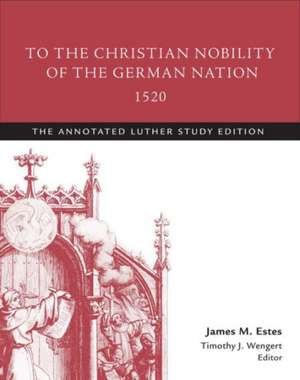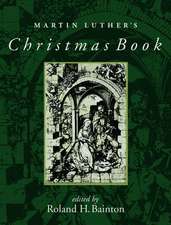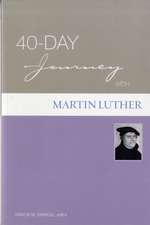To the Christian Nobility of the German Nation, 1520: Annotated Luther
Autor Martin Lutheren Limba Engleză Paperback – 30 mai 2016
With great clarity and insight, James M. Estes illuminates Luthers call to secular authorities to help with the reform of the church in this important 1520 treatise. Starting with the Ninety-Five Theses in 1517, Luthers appeals for reform had been addressed to the ecclesiastical hierarchy, whose divinely imposed responsibility for such things he took for granted. By the early months of 1520, however, Luther had come to the conclusion that nothing could be expected from Rome but intransigent opposition to reform of any sort. It was only at this point that he began to write of the need for secular rulers to intervene with measures that would clear the way for ecclesiastical reform. Concerned that Christendom was going to ruin, Luther argued that with such an emergency looming, anyone who was able to do so should help in whatever way possible.
This volume is excerpted from The Annotated Luther series, Volume 1. Each volume in the series contains new introductions, annotations, illustrations, and notes to help shed light on Luthers context and to interpret his writings for today. The translations of Luthers writings include updates of Luthers Works, American Edition, or new translations of Luthers German or Latin writings.
Preț: 148.28 lei
Nou
28.37€ • 29.68$ • 23.57£
Tipărit la comandă
Livrare economică 02-16 aprilie
Specificații
ISBN-10: 1506413498
Pagini: 108
Dimensiuni: 190 x 234 x 11 mm
Greutate: 0.3 kg
Editura: Fortress Press
Seria Annotated Luther

















